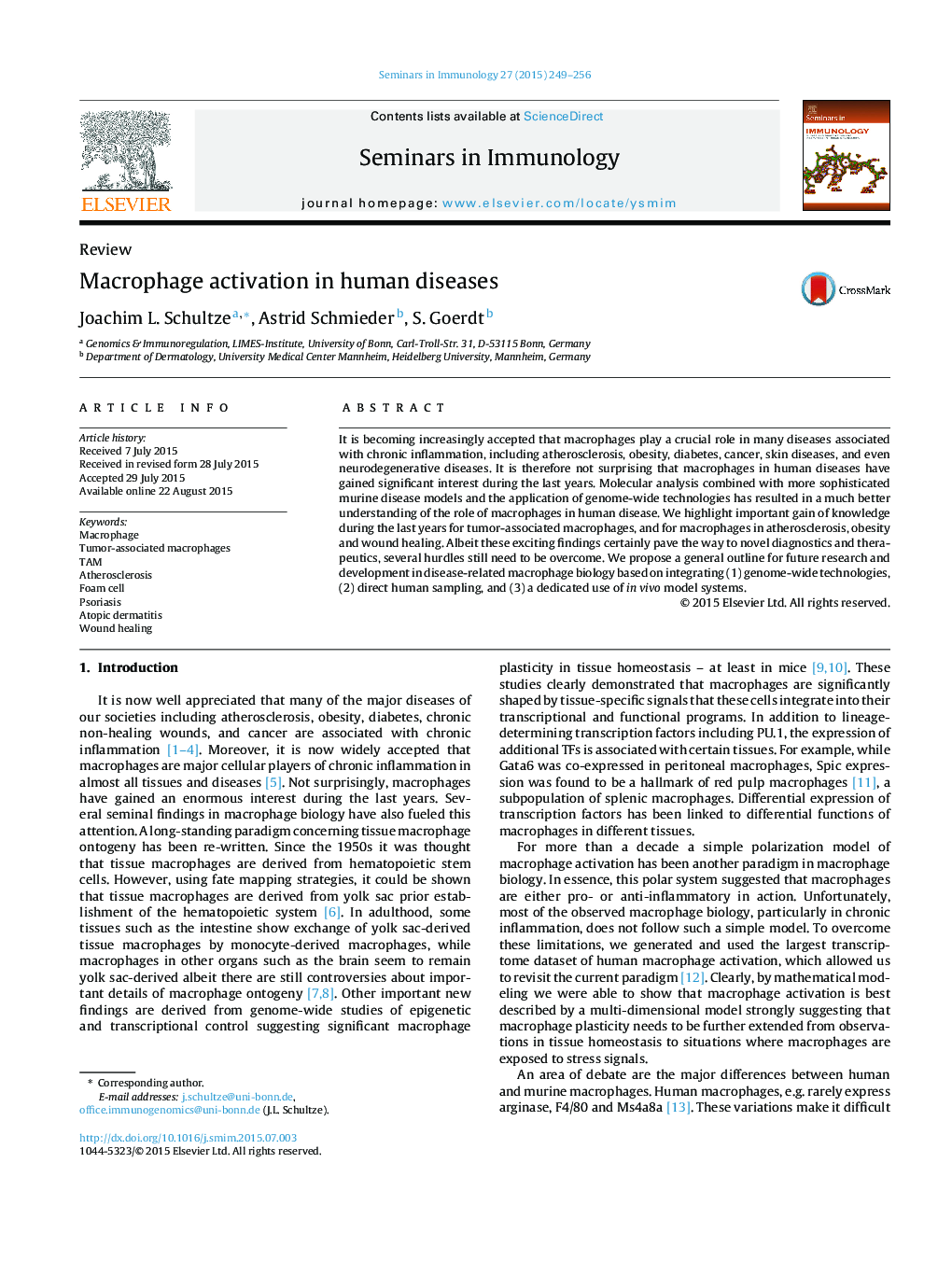| Article ID | Journal | Published Year | Pages | File Type |
|---|---|---|---|---|
| 3391305 | Seminars in Immunology | 2015 | 8 Pages |
•Macrophage activation in chronic inflammatory diseases is characterized by heterogeneity.•Macrophage activation is best described by a multi-dimensional model.•Tumor associated macrophages are a major focus.•Macrophages in atherosclerosis, obesity, insulin-resistance, and wound-healing are other foci.•Future research should include genome-wide technologies on the single cell level.
It is becoming increasingly accepted that macrophages play a crucial role in many diseases associated with chronic inflammation, including atherosclerosis, obesity, diabetes, cancer, skin diseases, and even neurodegenerative diseases. It is therefore not surprising that macrophages in human diseases have gained significant interest during the last years. Molecular analysis combined with more sophisticated murine disease models and the application of genome-wide technologies has resulted in a much better understanding of the role of macrophages in human disease. We highlight important gain of knowledge during the last years for tumor-associated macrophages, and for macrophages in atherosclerosis, obesity and wound healing. Albeit these exciting findings certainly pave the way to novel diagnostics and therapeutics, several hurdles still need to be overcome. We propose a general outline for future research and development in disease-related macrophage biology based on integrating (1) genome-wide technologies, (2) direct human sampling, and (3) a dedicated use of in vivo model systems.
